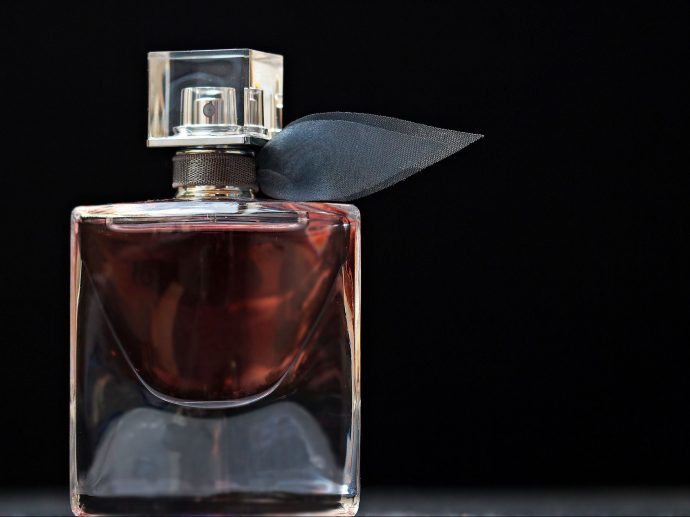Categories more
- Adventures (17)
- Arts / Collectables (15)
- Automotive (37)
- Aviation (11)
- Bath, Body, & Health (77)
- Children (6)
- Cigars / Spirits (32)
- Cuisine (16)
- Design/Architecture (22)
- Electronics (13)
- Entertainment (4)
- Event Planning (5)
- Fashion (46)
- Finance (9)
- Gifts / Misc (6)
- Home Decor (45)
- Jewelry (41)
- Pets (3)
- Philanthropy (1)
- Real Estate (16)
- Services (23)
- Sports / Golf (14)
- Vacation / Travel (60)
- Watches / Pens (15)
- Wines / Vines (24)
- Yachting / Boating (17)
The Influence of Culture on Men's Perfume Preferences
Published
08/22/2023Perfume is a powerful accessory that goes beyond mere fragrance—it's a statement of identity, a representation of one's personality, and a link to culture. When it comes to men's perfume preferences, the influence of culture plays a significant role in shaping the scents they choose to wear. From ancient traditions to modern sensibilities, the interplay between culture and fragrance is a captivating journey that adds depth to the world of perfumery.
Cultural Diversity and Fragrance Choice
The diversity of cultures around the world is beautifully mirrored in the array of men's fragrances available. Cultural backgrounds often shape individuals' preferences for certain scent families and ingredients. For example, the Middle East is known for its opulent oud-based perfumes, while Mediterranean cultures might lean towards fresher, citrusy scents. These preferences are deeply rooted in the landscapes, traditions, and experiences that shape each culture's olfactory sensibilities.
Ancient Perfume Traditions
The history of perfumery is intertwined with various cultures, each contributing its unique perspective on fragrance. Ancient Egyptians, for instance, revered fragrance as a link between the earthly realm and the divine. They used perfumes not only for personal adornment but also in religious rituals and burial ceremonies. Scents like frankincense, myrrh, and lotus held spiritual significance, showcasing the cultural dimension of fragrance even in ancient times.
Cultural Symbolism Through Fragrance
In many cultures, perfumes and fragrances are used to convey specific messages or symbolize particular traits. In some African cultures, certain scents are believed to have protective properties, warding off negative energies. In contrast, Japanese culture emphasizes subtlety and harmony, leading to the creation of minimalist yet impactful fragrances that reflect the nation's aesthetics.
Fragrance Rituals and Practices
Cultural rituals and practices often involve the use of fragrance. From Indian incense ceremonies to Native American smudging rituals, scents are integral to spiritual and ceremonial experiences. These practices not only connect individuals to their cultural heritage but also highlight the emotional and psychological impact of scents on our well-being.
Modern Globalization and Cross-Cultural Blending
In today's interconnected world, cultures are blending and influencing one another like never before. This is mirrored in the world of perfumery, where traditional ingredients and techniques are merged with contemporary trends. For instance, Western brands are incorporating oud, a traditional Middle Eastern note, into modern fragrances, resulting in scents that carry a cross-cultural essence.
Modern Cultural Fragrances
Some perfume houses are reimagining traditional ingredients and scent profiles to create fragrances that pay homage to cultural roots while appealing to a global audience. By blending heritage with innovation, these fragrances become a bridge between tradition and modernity.
The Intersection of Masculinity and Culture
Cultural influences often extend to how masculinity is perceived and expressed through fragrance. In some cultures, masculinity is associated with robust, spicy scents, while in others, subtler and more floral notes are embraced. The concept of masculinity is dynamic and evolves across cultures, and fragrances, such as Giorgio Armani Acqua Di Gio, provide a unique way to explore these nuances.
Unisex and Gender-Neutral Fragrances
As cultural norms around gender continue to evolve, so do perfume preferences. Unisex and gender-neutral fragrances challenge traditional notions of masculinity and femininity. These scents celebrate the idea that fragrance is a personal expression that transcends cultural and gender boundaries.
Cultural Appropriation and Respectful Collaboration
While cultural influences enrich the world of perfumery, it's important to address the concept of cultural appropriation. Perfume brands and creators must approach cultural elements with respect, acknowledging the origins and significance of certain ingredients or traditions.
Embracing Cultural Diversity Through Scent
The influence of culture on men's perfume preferences is a testament to the intricate relationship between scent and identity. As you explore different men's fragrances, you're not merely encountering notes and accords; you're delving into a tapestry of cultural histories, traditions, and emotions.
In a world where we celebrate diversity and interconnectedness, fragrances offer a sensory journey that bridges cultures and fosters understanding. Whether you're drawn to the bold ouds of the Middle East, the aromatic freshness of the Mediterranean, or the serene minimalism of the East, each choice of fragrance is a celebration of the rich cultural tapestry that defines our world.
For a range of sophisticated scents that cater to various cultural preferences, visit https://www.cupids.com/.















